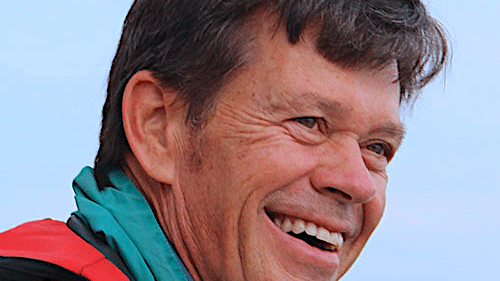Research shows that rural schools tend to face a variety of barriers compared to their urban and suburban counterparts when it comes to teaching STEM.
Many of these schools, said Soonhye Park, Ph.D., professor of science education in the NC State College of Education and a University Faculty Scholar, have limited access to advanced coursework, technologies and high-speed internet and difficulties recruiting and retaining STEM teachers.
“Teacher quality is especially critical in rural areas where schools often do not have the enrollment to offer multiple classes for a single science discipline. A chemistry teacher who meets the state requirements for certification in chemistry may teach two or three chemistry courses and be required to teach biology, physics or Earth science classes,” Park said.
Park and Assistant Teaching Professor Matt Reynolds, Ph.D., will more clearly identify the barriers rural STEM teachers face and create new professional development opportunities for them through their work on a $2.6 million, National Science Foundation Discovery Research PreK-12 grant-funded project.
“Supporting the Implementation of Scientific Modeling Instruction in High School Chemistry and Biology in Rural Schools” will provide teachers with 114 hours of formal professional development over the summer and sustained support throughout the academic year that will increase their discipline-specific knowledge and skills in engaging students in using models to further their scientific thinking and knowledge.
Park serves as a co-principal investigator on the project while Reynolds serves as senior personnel. The project is led by Scott Ragan, Ph.D., assistant director of the NC State College of Sciences’ Science House.
“Most scholars agree that for a teacher to be effective, they must not only understand the content they hope to teach, but also understand the personal, cultural and community assets of the students they teach,” Reynolds said. “A teacher being knowledgeable about students’ assets and interests is more likely to happen when they are part of the community they serve. To me, this is why it is so important to help support STEM teachers that already work in rural areas to have the largest positive impact on students in these same communities.”
The project team aims to revise the biology and chemistry curriculum to support about 60 rural teachers each year as they implement reform-oriented modeling instruction (MI), a pedagogical approach where conceptual models are created and applied to concrete, physical, biological and chemical phenomena to promote understanding.
“Modeling instruction has students combine the use of models with other scientific practices, such as collecting or analyzing data, arguing from evidence and communicating findings, giving them a more authentic experience of what scientists actually do in the field,” Reynolds said. “In both scientific communities and MI classrooms, modeling is done collaboratively and opens up opportunities for individuals to reason through their ideas, data and arguments and to raise new questions.”
Park said that the project team will review and revise the current biology and chemistry modeling instruction curricula during the Fall 2021 and Spring 2022 semesters, evaluating each modeling unit and generating recommendations for aligning them with the Next Generation Science Standards.
The revision, Park said, will place a greater emphasis on developing a cohesive set of knowledge in relation to an overarching question. For example, the modeling biology curriculum will be organized around the question, “what does it mean to be alive?” and will incorporate models of change, energy use, organization, growth and reproduction.
“Typical biology instruction creates gaps in student understanding due to content being taught from microscopic to macroscopic levels. Students fail to see the connections between topics in this sequential organization of instruction because biology is not sequential,” Park said. “Our modeling biology curriculum will be organized around overarching ideas that can be followed through multiple layers of organization to bridge these gaps.”
In addition to helping students better understand science materials, the project will generate knowledge about the development of rural science teachers’ pedagogical content knowledge (PCK) and the progression of their PCK associated with high-level implementation of modeling instruction.
Park said that while the challenges related to recruiting and retaining high-quality STEM teachers in rural schools are pervasive, little is known within the field about the specific knowledge and skills educators need to teach in rural contexts. This is problematic, as professional knowledge for teaching is highly context-dependent.
“Despite the strong relationship between PCK and instructional practices and student learning, it is not fully understood how teachers develop such an important knowledge base over a substantial time,” Park said. “Also only a handful of studies investigate the relationship between mentoring and PCK in the field of science education, and those studies exhaustively focus on in-person mentoring. However, research indicates that teachers in rural areas frequently do not have professional mentoring because they are often the only science teachers in their schools.”
This project will research how various aspects of virtual mentoring impact teachers working in rural schools, with the goal of providing insights into effective strategies and interventions that can support teacher development.
Professional development will be delivered through partnerships with local community organizations, including STEM West, the Western Region Education Service Alliance (WRESA) and the North Carolina Center of Advancement in Teaching (NCCAT).
As various cohorts of teachers from Hickory and Asheville, North Carolina receive mentoring, the project will result in a network of teacher-leaders who can sustain the initiative, which is expected to impact more than 25,000 rural students.
“Being the program coordinator for both the undergraduate and Master of Arts in Teaching (MAT) science education programs, I am excited for any opportunity to develop a network of teacher-leaders throughout the state. For both MAT and undergraduate alumni, these connections will be valuable to help continuing development of new beginning teachers” Reynolds said. “Long term, I am optimistic that these teacher-leaders will influence some of their students to consider becoming STEM teachers themselves.”
This post was originally published in College of Education News.



